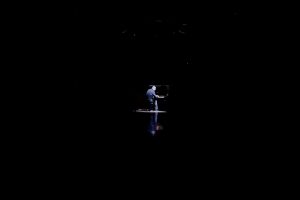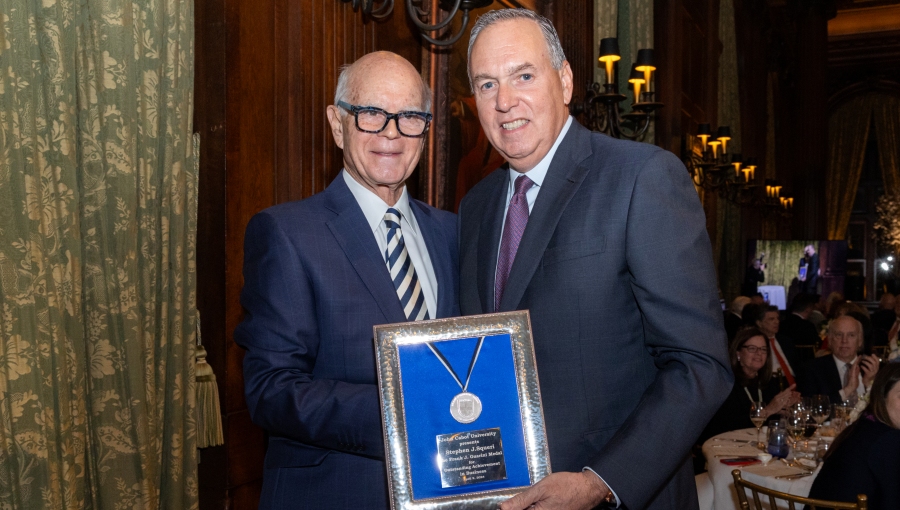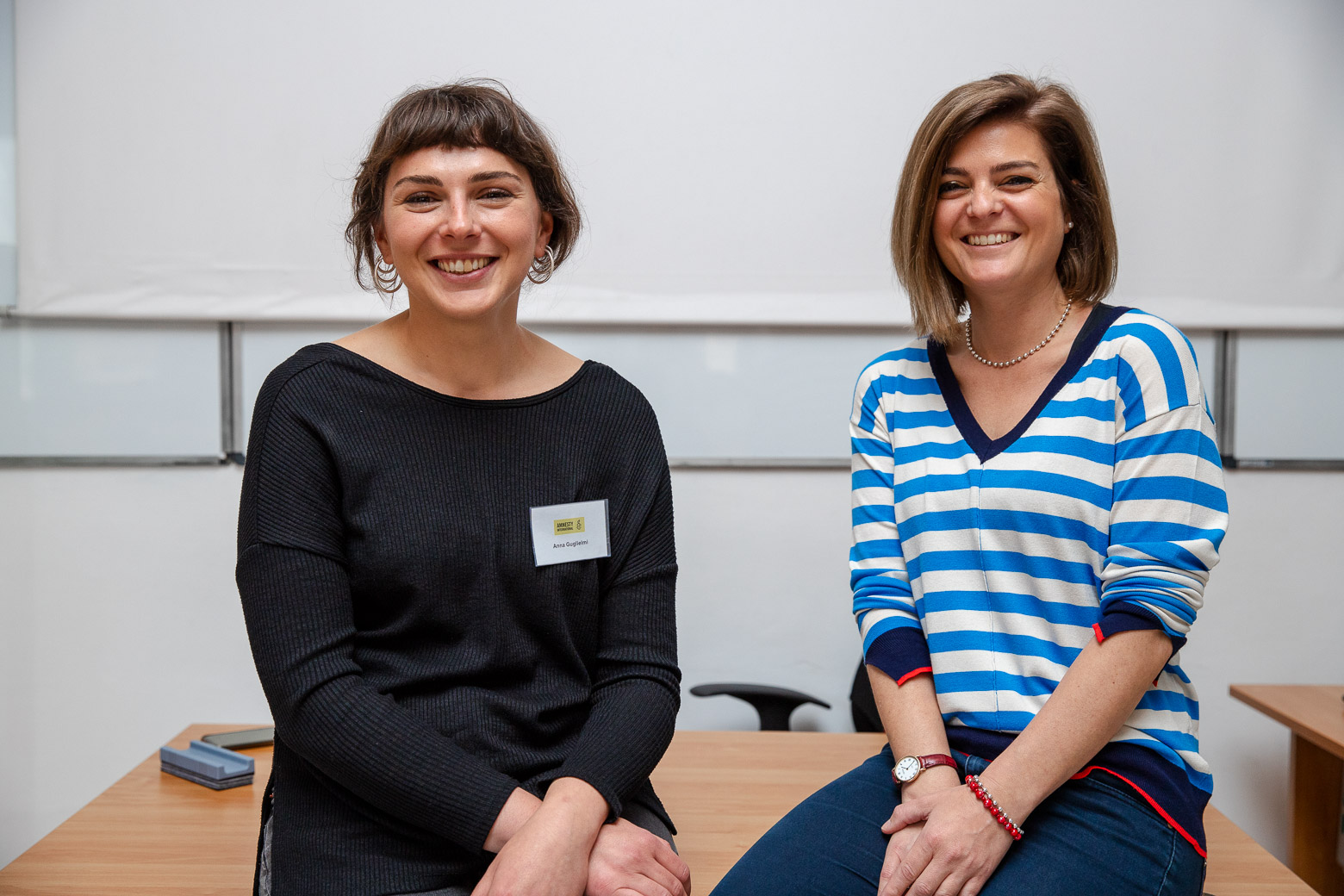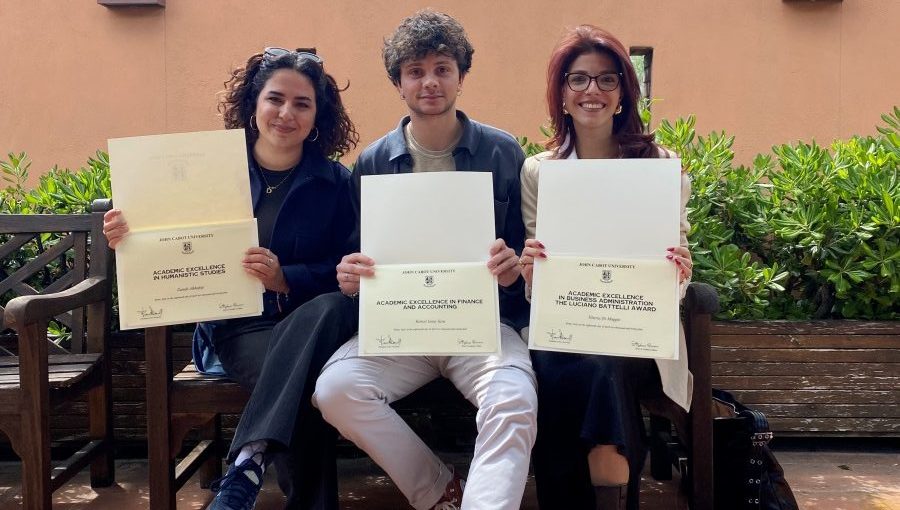John Cabot University Welcomes Jazz Pianist Enrico Pieranunzi
John Cabot University welcomed internationally-renowned jazz pianist Enrico Pieranunzi on March 1, 2018. Organized by the Department of Communications in collaboration with the Department of Modern Languages and Literature, the event, titled “Jazz in Europe: a Lecture and Piano Performance” was part of the Media and Communications Speaker Series.
Born in Rome, Pieranunzi started playing the piano when he was 5 years old. His father, who was a jazz guitarist in the style of Charlie Christian and Django Reinhardt, introduced him to music by teaching him the blues on the piano. The first piece he learned was a 1924 song by American composer George Gershwin, “Fascinating Rhythm,” which Pieranunzi performed at John Cabot University. Pieranunzi grew up studying classical piano while playing the American blues and jazz standards he learned from his father.
Throughout his career, Pieranunzi has won numerous awards including three “Musician of the Year” awards from the magazine Musica Jazz. He has worked with Chet Baker, Lee Konitz, Art Farmer, Charlie Haden, Paul Motian, Massimo Urbani, Chris Potter, Marc Johnson, and Joey Baron among others. He has composed over 300 pieces and recorded more than 70 albums. He is also the first Italian musician to record an album at the legendary Village Vanguard in New York City.
Pieranunzi alternated between lecture and performance during the evening, giving an overview of the history of jazz and explaining how it came to Europe.
Pieranunzi also focused on the interaction between American and European musical environments. Pieranunzi explained that jazz did not come to Europe through records, but thanks to live performances especially during the post-war periods, where people were hungry for music, especially dance music. Following World War I, a number of American expatriates settled in Paris and began to build up a jazz scene, which later spread to other countries in Europe. European jazz musicians were influenced by their classical roots and Pieranunzi himself has recorded his improvisations on the music of Bach, Handel, and Scarlatti. The pianist even dedicated an entire album to his re-interpretations of Scarlatti’s sonatas and he played one for the JCU audience.
Pieranunzi pointed out that jazz began as a popular dance music genre and it evolved over time, thanks to geniuses like Charlie Parker, Duke Ellington, and Thelonius Monk, Miles Davis, and John Coltrane. While it gained a more refined status, it never appealed exclusively to the elite like classical music did. This is because jazz did not require an exceptional education or wealth to be appreciated. It never became commercial music and it always kept its origins as an improvisational genre. Pieranunzi insisted that although jazz is taught in music schools and conservatories, it is essentially meant to be learned on an individual basis since it must connect to one’s soul.
When asked why blues and jazz are so universal, Pieranunzi explained, “There’s something magical and miraculous about this music, perhaps it’s the combination of major and minor chords and the fact that it manages to portray life, love, beauty.”
Pieranunzi concluded the evening with an improvised piece dedicated to JCU, which he called the “John Cabot Blues.” But he was met with so much applause and requests for an encore that he played one last piece, his composition “Tales from the Unexpected.”
“The lecture-performance by Enrico Pieranunzi was amazing,” said student Rajesh Cecchini. “It was a fantastic opportunity to not only learn about the history of jazz but also to listen to one of Europe’s top jazz musicians.”
Watch the lecture/performance here.







